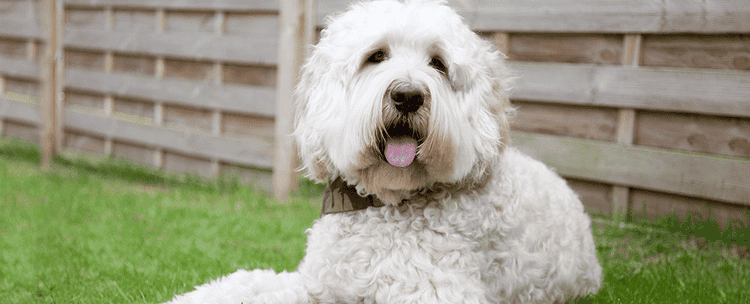How to pick a dog that suits your lifestyle
Bringing a new dog home is exciting; just think about all the things you can do with your new best friend! Whether you’ve had dogs before or are about to become a first-time dog parent, it’s important to consider your lifestyle — your family size, day-to-day routines and more — when deciding which dog breed will be happiest as part of your pack.
A dog’s breed isn’t the only factor in determining their overall behavior; their individual personality and background also play a role. That said, knowing common breed qualities can help you make a decision. If you’re adopting, make sure to ask the shelter about the dog’s history and what they’ve observed while caring for the dog. Their answers can help you determine if a dog is right for your lifestyle and circumstances.
Ready to find out which breed(s) may be right for you? We’re here to help.
Picture Your Life with Your Dog
Before you consider individual breed qualities, it’s important to imagine what life with your new canine companion will be like. Will your small dog cuddle up with you on your sofa or bed? Will your larger dog join you on daily runs or weekend hikes? Will other adults or older kids help care for your dog, or will it often be just the two of you?
Answering these questions can narrow your focus on which breeds to consider. Check out the common lifestyle situations below to help guide you closer to a best friend that best fits your life.
“I Live Alone and Work from Home.”
In recent years, the typical nine-to-five workday has been replaced with more flexible ways of working. If you spend most days working from home, be sure to consider how energetic and independent a breed is before making a final decision. And don’t forget about barking! A very vocal breed can disrupt a video call, even if you’re quick to mute. Some breeds that may be well-suited to owners who work from home are:
- Whippet: This often quiet breed is typically happy to chill out at home after a bit of daily exercise. They’re slender, often sensitive companions who are known to dislike the cold, which could mean endless cuddles during your online meetings.
- Basenji: A somewhat rare African breed, Basenjis usually have a quiet temperament and may not bark as much as some other breeds. They tend to express themselves instead through a specific sound. Often independent and smart, they often love to show affection but typically don’t need a lot of attention.
- Greyhound: While this may be surprising, greyhounds are generally calm and affectionate dogs who may enjoy sleeping throughout the day … after a long walk, of course. Although they usually grow larger than their look-alike, they’re often akin to whippets in disposition and appearance.
- Yorkshire terrier: This spunky breed has a reputation for being full of attitude and personality. They can sometimes be noisy, but they’re also typically eager to please, so early training can help keep their bark at bay. Yorkies are usually loyal and attentive to their owners, so they might enjoy being by your side while you work.
“We Are Not-So-Empty Nesters.”
A lot of research points to the positive health benefits for dog ownership for seniors, and many breeds may be well-suited to a quieter life with moderate exercise. But if you often have grandkids or other young children visiting or staying with you, be sure to look for an adaptable breed that enjoys periods of high activity and that can tolerate some rough-and-tumble play. Here are some breeds to consider:
- Labrador retriever: Frequently friendly and eager to please, Labradors can be a great choice for homes with numerous visits from friends and family. They do need plenty of exercise but are usually adaptable if they miss an occasional walk.
- Cavalier King Charles spaniel: These generally loving lap dogs can be a great choice for older people. They often love to cuddle and spend time on the sofa with their owners and typically require only a moderate amount of exercise.
- Bichon frisé: Usually sweet, friendly and low maintenance, the bichon frisé can be an easy companion and is often a good choice for first-time dog owners. Ordinarily gentle and playful, you can usually count on them to get along well with other pets and children.
- Havanese: A breed often eager for attention, a Havanese could be a good choice for seniors who are home more and who enjoy socializing; they tend to get along with other dogs and normally love to say hi to new people! Their intelligence can make them easy to train, and their small size helps make them easy to carry.
- Beagle: Often a great choice for homes with yards and frequent visits from grandkids, beagles are generally sociable and tend to love playing and taking walks. But unlike many other small dogs, they generally don’t require a ton of attention and their short, dense coat can make grooming simpler.
“I Live Alone but Am Often on the Road.”
While it’s never a good idea to leave a dog alone for long periods of time, if you spend long days at the office or travel frequently for work, it’s important to consider a breed that can typically tolerate some time at home without you. Some dogs are more prone to separation anxiety than others, and they will often act out when left alone. Consider these breeds if you need to balance home life with your life in the outside world:
- Boston terrier: Known for their intelligence, independence and cheerfulness, this terrier breed is often highly friendly, even with people outside their household — so they may get along well with the pet sitter if you’re away.
- English toy spaniel: These regal dogs were bred to be aristocrats, so they tend to be independent and well-mannered. They’re often curious companions who are often happy entertaining themselves or napping on your lap.
- Rhodesian ridgeback: This smooth-coated breed may be the perfect watchdog while you’re away. With regular exercise, Rhodesian ridgebacks are typically easygoing, eager to please and highly adaptable. They’re normally vigilant and protective of their space, even if you’re not home.
“We’re Ready to Add a Fur Baby to Our Family.”
Having a dog can help teach kids responsibility and compassion, but just because dogs and kids seem to mesh well doesn’t mean all dogs will be the right fit for all homes with children. Some breeds are playful and protective; others are content to cuddle on the couch. Knowing which suits your family best is key to a happy dog and a happy home. Here are some breeds to consider adding to your family:
- Cocker spaniel: Typically playful, dependable and affectionate, cocker spaniels can be fantastic all-around family dogs. They’re often great playmates for active children and usually enjoy giving and receiving affection.
- Golden retriever: An incredibly popular breed known for its fun-loving personality, goldens often temper their playfulness and enthusiasm with patience and tolerance — which can make them great for families with children of all ages.
- Springer spaniel: Generally high-energy and very friendly, springer spaniels can make excellent pets for families with kids. They can be eager to please and generous with affection, and they’re usually athletic dogs who need plenty of exercise, which can make them a great choice for active families.
- Corgi: Though short in stature, this typically gentle, loving and smart breed may quickly bond with family members. While they can be playful and energetic, their shorter legs often require shorter walks that are easy to fit into a family’s busy routine.
- Soft-coated wheaten terrier: With a reputation for being fun-loving, inquisitive and fluffy to a fault, soft-coated wheaten terriers are often well-suited to life with active families. They tend to be protective by nature and can make good watchdogs, but their usually gregarious personality means they will likely love just about everyone they meet.
Choosing the Right Dog for You
Remember: Adopting a dog is a personal decision that should be made carefully. While breed considerations are important, each dog is a unique individual whose behavior is shaped by their history, genetics and past and present environments. Before getting a new dog, do some research on breeds you’re interested in. You can also spend time with them and talk with shelter staff or the breeder. These pre-adoption meetings and discussions can give you invaluable insights about your potential new best friend.
Don’t Miss Out on Mixed Breeds
Adopting a mixed-breed dog from a local animal shelter is another great way to welcome a dog into the family. Mixed-breed dogs often have a combination of breed traits that make them suitable for a variety of homes and families. Plus, adopting an adult dog can cut down on the time you’ll need to invest in potty and obedience training.
Related Articles

Puppy Parenting: Our Downloadable Guide
New puppy? Whether this is your first go-round or your fifth, we know that so much goes in to raising healthy, happy pups. Check out our free guide, also available to download!







